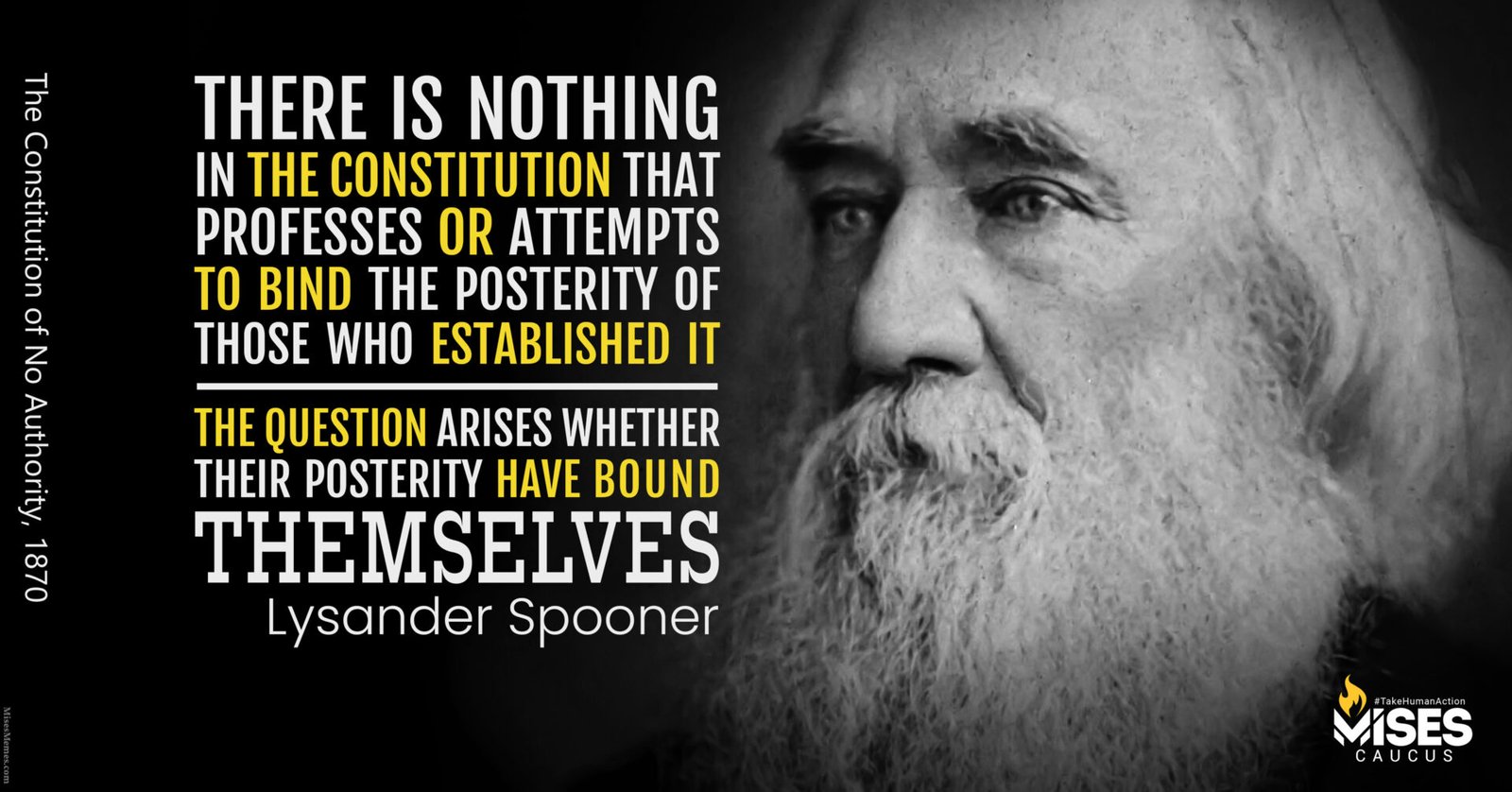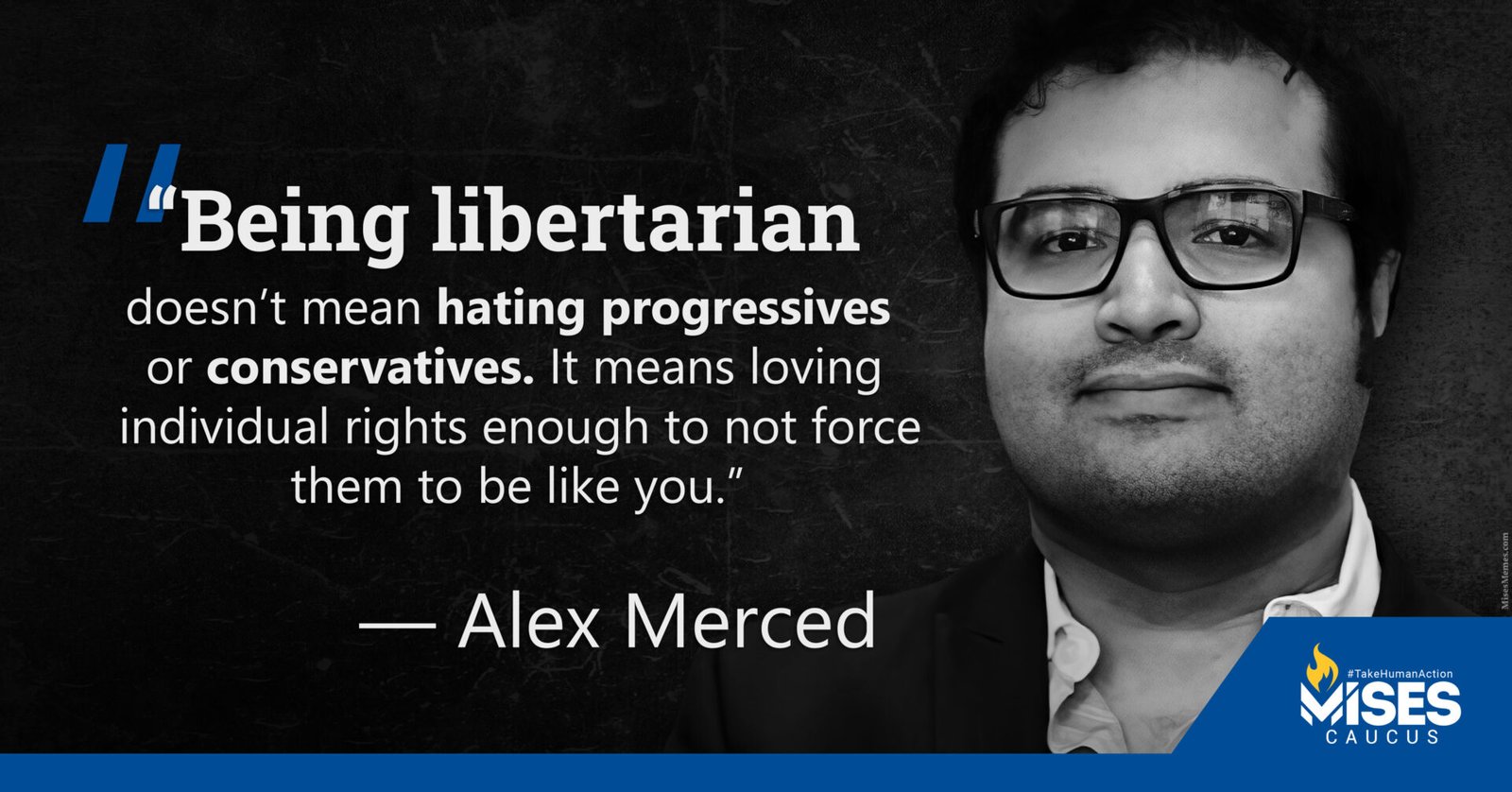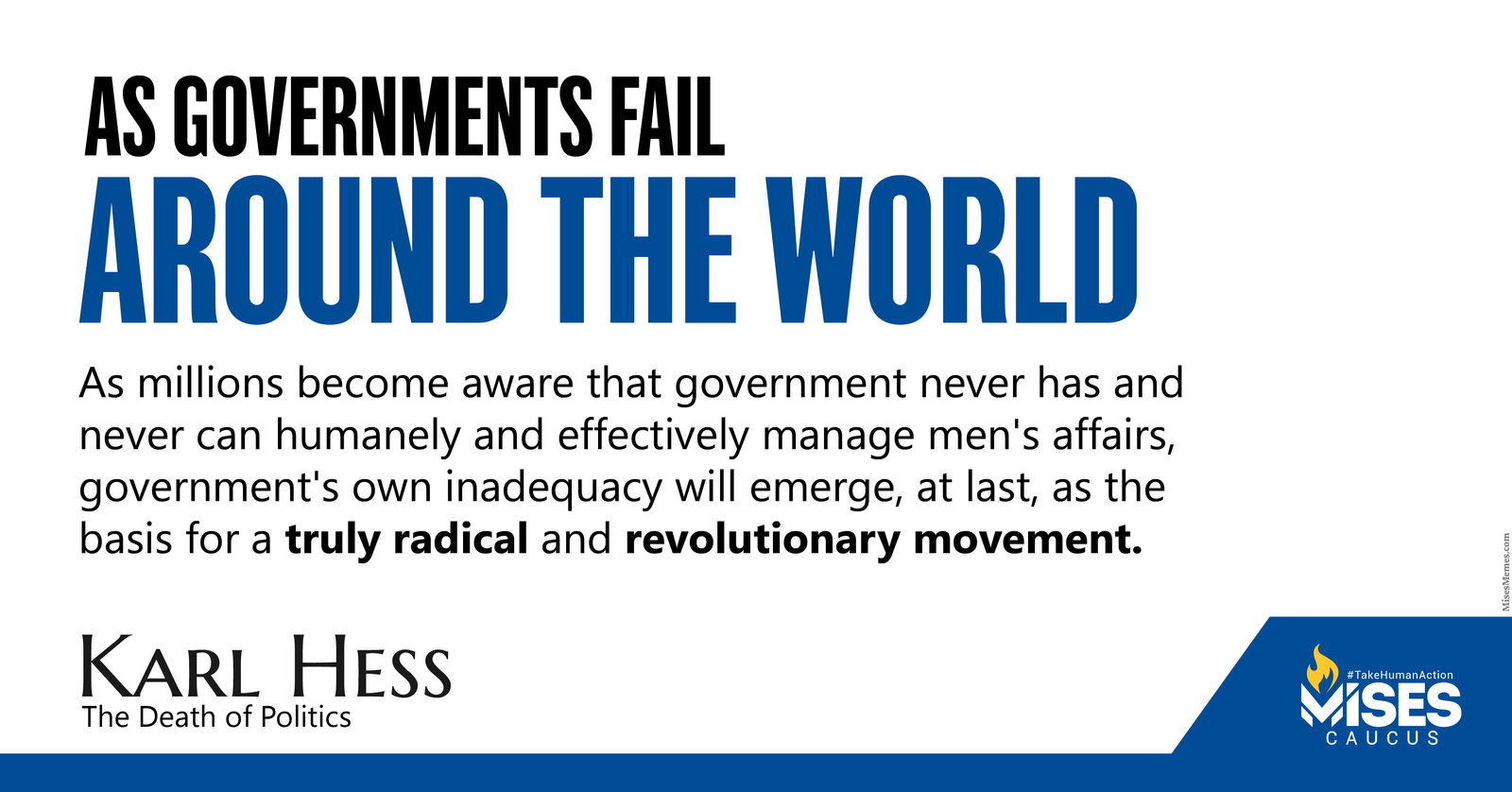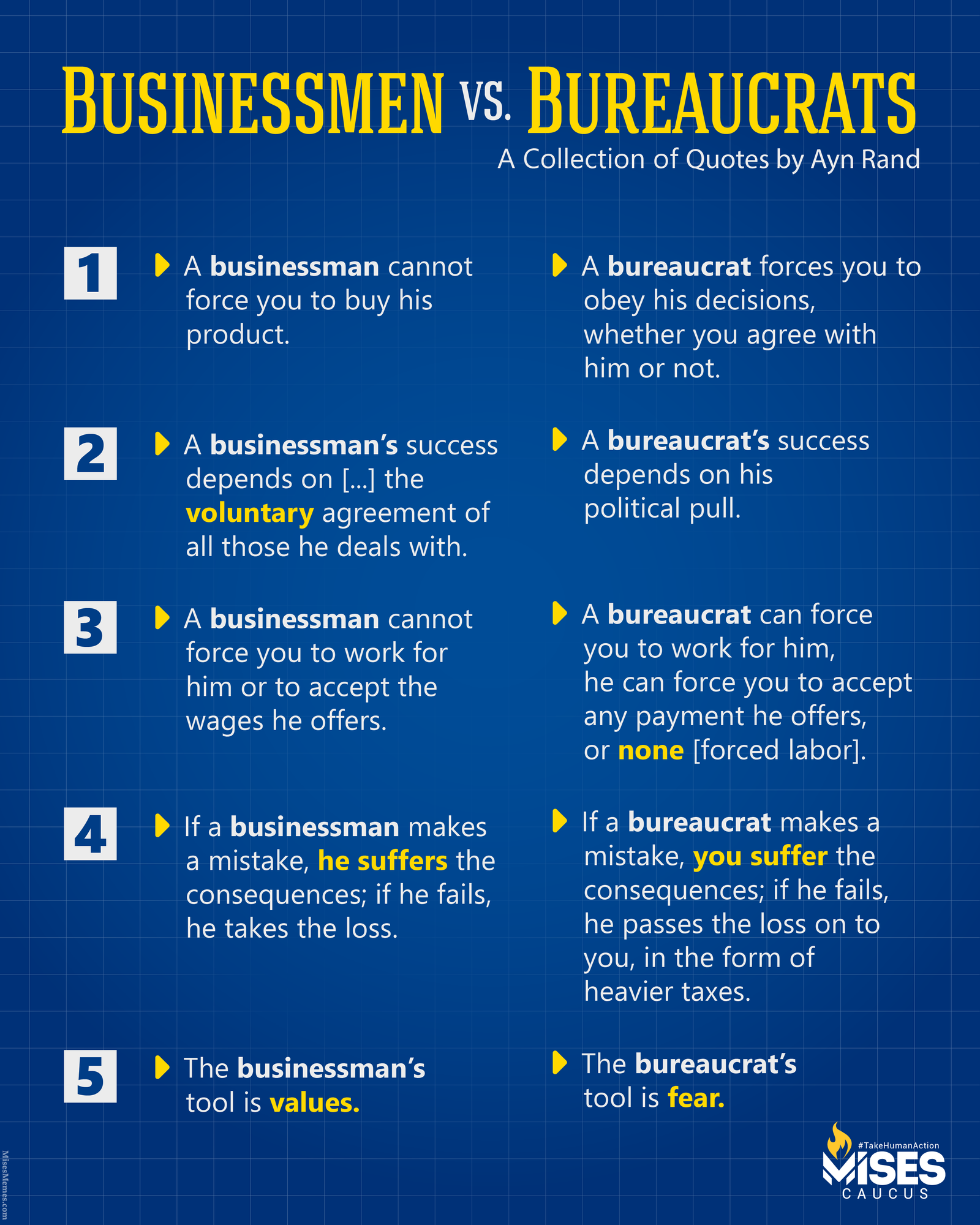There is nothing in the Constitution that professes or attempts to bind the posterity of those who established it. The question arises whether their posterity have bound themselves. —Lysander Spooner


There is nothing in the Constitution that professes or attempts to bind the posterity of those who established it. The question arises whether their posterity have bound themselves. —Lysander Spooner

The State dirties and taints everything it touches. Run by gangs of murderers, plunderers, and thieves, surrounded by willing executioners and propagandists. —Hans-Hermann Hoppe

Being libertarian doesn’t mean hating progressives or conservatives. It means loving individual rights enough to not force them to be like you. —Alex Merced

The radical-revolutionary position is a lonely one. It is feared and hated, by both Right and Left — although both Right and Left must borrow from it to survive. The radical-revolutionary position is libertarianism, and its socioeconomic form is laissez-faire capitalism. —Karl Hess

A businessman’s success depends on his intelligence, his knowledge, his productive ability, his economic judgment—and on the voluntary agreement of all those he deals with: his customers, his suppliers, his employees, his creditors or investors. A bureaucrat’s success depends on his political pull. A businessman cannot force you to buy his product; if he makes a mistake, he suffers the consequences; if he fails, he takes the loss. A bureaucrat forces you to obey his decisions, whether you agree with him or not—and the more advanced the stage of a country’s statism, the wider and more discretionary the powers wielded by a bureaucrat. If he makes a mistake, you suffer the consequences; if he fails, he passes the loss on to you, in the form of heavier taxes.
A businessman cannot force you to work for him or to accept the wages he offers; you are free to seek employment elsewhere and to accept a better offer, if you can find it. (Remember, in this context, that jobs do not exist “in nature,” that they do not grow on trees, that someone has to create the job you need, and that that someone, the businessman, will go out of business if he pays you more than the market permits him to pay you.) A bureaucrat can force you to work for him, when he achieves the totalitarian power he seeks; he can force you to accept any payment he offers—or none, as witness the forced labor camps in the countries of full statism.
The businessman’s tool is values; the bureaucrat’s tool is fear.
—Ayn Rand
A businessman’s success depends on his intelligence, his knowledge, his productive ability, his economic judgment—and on the voluntary agreement of all those he deals with: his customers, his suppliers, his employees, his creditors or investors. A bureaucrat’s success depends on his political pull. A businessman cannot force you to buy his product; if he makes a mistake, he suffers the consequences; if he fails, he takes the loss. A bureaucrat forces you to obey his decisions, whether you agree with him or not—and the more advanced the stage of a country’s statism, the wider and more discretionary the powers wielded by a bureaucrat. If he makes a mistake, you suffer the consequences; if he fails, he passes the loss on to you, in the form of heavier taxes.
A businessman cannot force you to work for him or to accept the wages he offers; you are free to seek employment elsewhere and to accept a better offer, if you can find it. (Remember, in this context, that jobs do not exist “in nature,” that they do not grow on trees, that someone has to create the job you need, and that that someone, the businessman, will go out of business if he pays you more than the market permits him to pay you.) A bureaucrat can force you to work for him, when he achieves the totalitarian power he seeks; he can force you to accept any payment he offers—or none, as witness the forced labor camps in the countries of full statism.
The businessman’s tool is values; the bureaucrat’s tool is fear.
—Ayn Rand


Libertarianism is neither of the left nor of the right. It is unique. It is sui generis. It is apart from left and right. The left-right political spectrum simply has no room for libertarianism. Think of an equilateral triangle, with libertarianism at one corner, the left at a second corner and the right at the third corner. We are equally distant from both of those misbegotten political economic philosophies. No, better yet, think in terms of an isosceles triangle, with us at the top and the two of them at the bottom, indicating they have more in common with each other than with us. —Walter Block